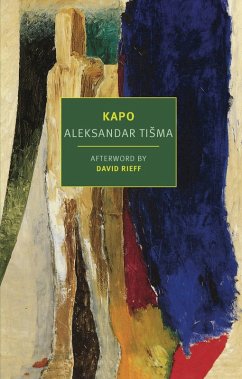Dieser Download kann aus rechtlichen Gründen nur mit Rechnungsadresse in A, B, BG, CY, CZ, D, DK, EW, E, FIN, F, GR, HR, H, IRL, I, LT, L, LR, M, NL, PL, P, R, S, SLO, SK ausgeliefert werden.
A brooding, curiously prescient saga. . . . A probing, exceptional study of a man as both victim and tormentor, and more. Kirkus Reviews
[Kapo is] the last and best book in the Novi Sad trilogy. . . . [Ti ma s] fiction is merciless, bereft of relief or respite. It is the work of a documentarian accustomed to confronting atrocity without allowing himself the indulgence of looking away. Becca Rothfeld, Sidecar, The New Left Review
An unblinking portrayal of evil for which there is no penance, from whose guilt there is no relief, and for whose knowledge the only escape is death. . . . Kapo is a palimpsest of horrible knowledge, obtained through unbearable means, and its unique value, even greater than Ti ma s other novels, lies in the rarity and moral necessity of its knowledge, delivered as painfully transparent art. David Auerbach, Apofenie









